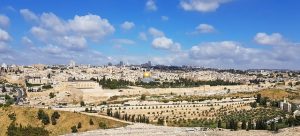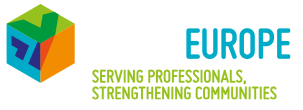Chodesh Tov and welcome to the new month of Iyar.
For many of us (if not all of us) the month of Nissan brought tremendous challenges and difficulty, and we stand at the head of a new month with hope in our hearts for a change in the fortunes of humanity.
Last month represented redemption and hope for the Jewish people. The narrative celebrated with Pesach during the month of Nissan, the Exodus narrative, has been given to the world by the Jewish people as the ultimate narrative of hope. The month that follows Nissan, the month of Iyar, is a modern-day sequel.
After two thousand years of exile, persecution and murder, the Jewish people finally returned to its homeland and reestablished sovereignty there on the 5th of Iyar 5708 (1948), and united its ancient capital, Jerusalem, on the 28th of Iyar 5727 (1967). These events are celebrated today as Yom Ha’atzmaut (Israel Independence Day) and Yom Yerushalayim (Jerusalem Day). Even the minor festival of Lag Ba’Omer, where we commemorate the cessation of the plague that took the lives of 24,000 of Rabbi Akiva’s students in the Second Century (a message of hope that will resonate more deeply than ever before this year), occurs each year on the 18th day of Iyar.

Nicolai Berdyaev (1874–1948) was a Marxist thinker who held the chair of philosophy at the University of Moscow. In later life he rejected Marxism and became increasingly devoted to religion. In The Meaning of History he describes Jewish history as “a mysterious and wonderful phenomenon demonstrating that the life of this people is governed by a special predetermination, transcending the processes of adaptation expounded by the materialistic interpretation of history. The survival of the Jews, their resistance to destruction, their endurance under absolutely peculiar conditions and the fateful role played by them in history: all these point to the particular and mysterious foundations of their destiny.”
At a time of deep darkness and uncertainty for humanity, we can and must take comfort in our own history, and share this narrative of hope, beginning in biblical times and continuing to this day. Our very existence today as Jews is proof things will get better, we will overcome, and tomorrow will be better and brighter than today.
Resources:
For the Resource of the Month this month we would like to draw your attention to Unpacked for Educators (a division of OpenDor Media) whose aim is to provide videos and resources that explore the story of Israel and the Jewish people, in all its complexity, meaning and sophistication. Educational tools that will engage students in a physical or virtual classroom.
They have a specific (though not exclusive) focus on educating about Israel, and you may find the resources below useful for community programming over the next month.
In each of the links below you will find a 10 minute (approximately) video and the following educational resources to help you create an educational program on the topic:
- Review questions
- Discussion questions
- Reflection questions
- Learning activities (including a Kahoot! quiz on the topic)
- Further learning resources (articles, videos, books, podcasts)
Laying the Foundation: Early Zionist Thinkers
- Herzl: The Zionist Dream of a Jewish State
- The Dreyfus Affair
- What is Zionism
- David Ben Gurion: Israel’s First Prime Minister
- The Women of Zionism
The Arab Israeli Conflict
- What are the Israeli Settlements?
- The Jewish Connection to the Land
- Israeli Settlers
- Palestinians of the West Bank
- Israeli-Palestinian Peace
Israeli Culture
Yom Hazikaron / Yom Ha’atzmaut
A possible Yom Ha’atzmaut community programming event: The Yom Ha’atzmaut Global Trivia Championship
We have chosen this week to highlight resources in depth from one organization. There are many excellent resources for Yom Ha’atzmaut programming available online from other providers, such as The National Library of Israel, Etgar UK, The iCenter and Jewish Interactive.
